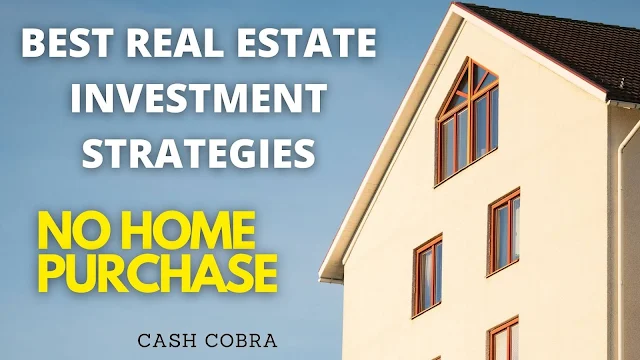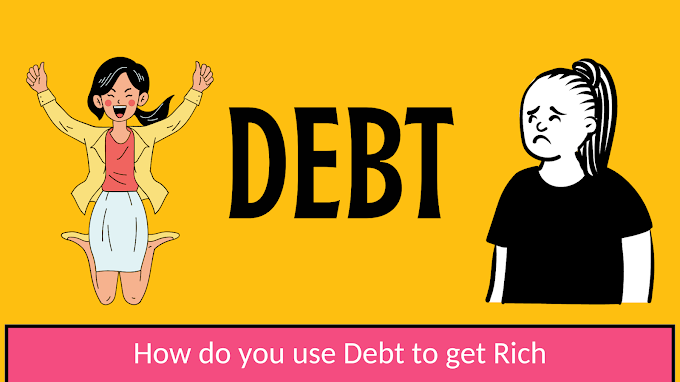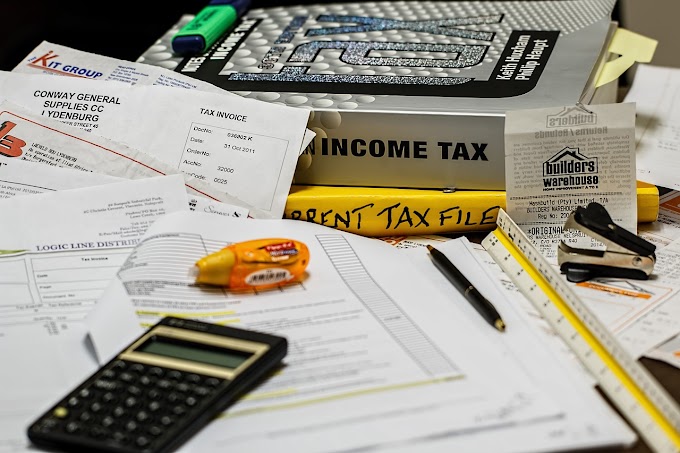I will show you what 90% of millionaires do that contributed to their financial success. Stick around to the end so you can see the best option that not only puts money in your pocket right now but also sets you up for a beautiful retirement.
Welcome back I am here to teach you the financial lessons that you should have been taught in school but for some reason, they forgot to be sure to subscribe because we talk about everything from personal finance to investing to economics and the best part is I get straight into it.
So how would you build crazy amounts of wealth?
The stock market possibly but it might take a while and if you want to actually have access to your gains there are some taxes that you will have to pay that ain't so pretty.
Alternatively, you can invest in real estate and what's unique about real estate is that it just has so many different ways to invest you can put as much control or as the control as you want to as much money or as owe money as you want to the choice is yours and you don't have to even own home if that's not your thing.
Real Estate Investment Trusts (REITS)
Let's get started with REITS e so for those who don't know I am the senior of financial reporting at Oro state investment trust. I know what I am talking about you can trust me but you do have to do your own research.
REITs are basically stocks but they pay dividends.
What's unique about REITs is that they have to give 90% of their income to shareholders. Think about it this way when you buy one of these REITs stocks you're pretty much getting a share of the company that's what they call them shares right.
You get your share of the company based on how much money you've invested they pay out what we call dividends and that can be either monthly or quarterly it just depends on which REITs you invest in.
What we do? is they do all the work for you you give them your money they choose what assets they want to purchase it can be commercial properties it can be multifamily properties which are basically residential apartments if you live in one that's an investment.
They can also give out loans I mean it's literally pretty much anything that you can do with real estate these Reed's can do because they have to pay out 90% of their income you normally get a pretty decent return anywhere from 8 to 10 percent or even more.
Try getting your savings you can get a reach as low as $25 a share you can Google REITs and see which ones might be better for you you can review their balance sheet which I can get into in a whole separate article but the point is to get in there invest and collect your dividends while you sit back and relax
Now the one downside we reached it you don't get the same exact tax advantages that's what I'm going to mention later in the article which is why this is a good option but sticks around for an even better option.
Crowd Funding
You would have the small portions of money relative to what you would have to pay for it say your own home and it goes into a real estate project or a portfolio so ends up being a whole pool of investors.
When you're investing in a real estate project or portfolio equity. It's kind of like the read where you have a share of that company.
If they were to sell an asset you should be able to get some of that money back to you. The money that you're getting paid back comes from the rental income or any other increment the portfolio generates which like I said if you're said they sell a property you should be getting that income as well.
Conversely but that kind of funding you get your income in the form of interest for the mortgage payments. This is different because you don't actually own a share of the company.
If they were to sell one of their real estate buildings you wouldn't really get anything from that.
There are plenty of different crowdfunding options that you have. If you go to Google search crowdfunding you'll get a whole bunch of different options to let me know. If that's something that you would be interested in me making an article on what I think about the different crowdfunding websites.
The downfall with crowdfunding is there are fees I know you guys don't like read and I know it but it's okay you must because if you're putting your money and these things. You better know what's going on in there.
Another thing is they do keep your coin for a very long time it can range from 2 to 10 years. Make sure that you okay with having your money relock up for that long period of time you know what I mean.
Multifamily Housing
With this there are so many advantages that you can get the one downfall is it's a lot more startup capital that you need whereas you can get into a REIT with $25. You can get into crowdfunding with maybe a couple 100.
With multifamily properties, you will have to put a pretty penny down okay but the money you get back would make it all worth it.
Plus you have full control over this asset so if you want to sell it you can. If you don't want to sell it if you want to rent it out long term short term baby it's all up to you.
Also in some cases depending on where you live in what their options are you can get into a home without any down payment there are plenty of Duncan assistant programs personally I live in Florida and I've seen up to 10 or 15 thousand dollars worth of money that they give you to get into your home.
A lot of times you don't have a feed on money back it does depend on your income so definitely check with your state if you just Google downpayment assistance programs and there you go.
What I love so much about this method? is that there are so many options that you can do. If you want to be super conservative you're not really entirely sure about this whole real estate thing and you saw happen in 2008. Maybe you're a little bit nervous that's cool we get it.
House Hacking
What you can do is what we call house hacking and that is the concept of buying a duplex living in one side and renting out the other. The way this works is obviously you need to make sure you can make the payment even if you didn't have that other side rented.
You have a very low risk because you live there and no matter where you go you will have to be making a rental payment right unless you live with your parents of course.
You get that property you live in on one side you rent the other side out and if you do this the right way you and I end up in anything.
Now true story a couple months ago I put an offer in for a home that was beautiful. It was actually for the most part pretty much ready to go and literally the other side was already paying rent. It was already rented and that rent was my whole entire mortgage payment plus about $100.
I will have a whole bunch of content coming on about real estate from short-term and long-term rentals I have a lot of content coming up so please make sure you're subscribed so you can see that.
Rental Duration
Speaking of long-term and short-term depending on what you want to do. You can have a long-term rental which is somebody who would be signing maybe an annual lease or a month-to-month lease or you can do short-term rentals which we most commonly know as AirBnB.
Those temporary people not really here for long. You get more money with short-term rentals but it's also more turnover and more expenses - if you don't even want to have that much involvement you can hire a property manager.
I've seen them from anywhere from 7 to 10%of that monthly income. It's something you can think about and factor in when you are looking for properties.
This is awesome because if you can get a downpayment assistance program coupled with getting a duplex and having that other side rented out.
I mean you'll pretty much get in there with not much skin in the game and your returns can be insane. This method has the most tax advantages because you have depreciation that you could take off interest on the loan. It taxes your insurance your maintenance I mean you can write everything off.
Single Housing
Another option is if you have a single-family home let's say you don't really want to do Plex you can Airbnb a couple of rooms in the house or you can have a roommate right. Now all your roommates hoping you pay off your loan.
You're paying down the mortgage. They're helping you through the mortgage as well. You should get equity in there as long as we are in an appreciating market. I know I said a mouthful. If you guys want me to expand on any of that let me know in the comments.
Wholesaling
The final method is what we call wholesaling and that is the concept of taking a contract and flipping it you know. I remember back in like 2013. Everybody was talking about 50/50 into 100 this is the real-life way to flip the money okay.
Now, this method would require you to be a networker you have to be a go-getter for this because you're gonna purchase a house and when you get that house under the contract which means. They've accepted your offer you will see a section within that contract that disgusts wholesaling.
In this case, you want to have the option to be able to transfer this contract off to somebody else you will find these properties undervalue.
So let's say if a house has some cosmetic things that it needs to be done some carpeting some of the new paints something like this right. Most people want move-in ready to it they're gonna probably pass it up but you see that potential.
Property Worth: $150k after repairs
Purchase Prive: $100k
Assign Contract to the buyer for $110k
Your Profit: $10k
What you're gonna do is your life or let's say $100,000 it's really worth 150 right. You'll sell to somebody else for 110,000 so that 10 dozen of a difference is yours.
A lot of people have had so much success on this.
Check out wholesaling from a website called bigger pockets which is where I get so much great information so that's and I check it out if you're interested and it'll let you know more about the whole selling process.
Also, Read
Housing Market Predictions | The Future of Real Estate and the No Rent/Mortgage Stimulus Package!
Eliminate Bad Money Habits | How to Create a Rich Life - Cash Cobra







